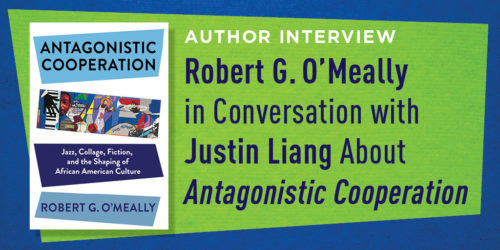Gertrude Stein & Fascism: Interview with Barbara Will, author of Unlikely Collaboration
The following in an interview with Barbara Will, author of Unlikely Collaboration: Gertrude Stein, Bernard Faÿ, and the Vichy Dilemma
Question: Why the title Unlikely Collaboration? What is the book trying to argue through this title?
Barbara Will: When most people think about modernist writers, they think about literary experimentalism, the cultural avant-garde, and, usually, progressive politics. We tend to assume that experimental, iconoclastic writers would be the least likely people to throw their support behind fascist or authoritarian regimes. The book’s title acknowledges the unlikelihood of someone like Gertrude Stein—the very epitome of high-modernist writing—being drawn to reactionary or profasicst politics in the 1930s and 1940s. It also acknowledges the unlikelihood of Stein’s friendship with someone like Bernard Faÿ, whom Alice Toklas referred to as Stein’s “dearest friend during her life.” Why would Stein be so drawn to Faÿ, a scholar, aesthete, and right-wing intellectual who ended up working for the Vichy regime? Exploring their collaboration with each other, as well as the different ways in which each collaborated with the Vichy regime, gives us a really interesting perspective on the complex and morally ambiguous world they were living in.
Q: What makes this book different from others, for example, Janet Malcolm’s Two Lives?
BW: Malcolm’s book was a more personal and impressionistic exploration of the subject through the lens of her own interests as a biographer. My book is different in being heavily based in archival research, conducted over the course of a decade in the United States and France. I looked at every archive I could get my hands on, including the Stein archive at Yale University, the documents for Bernard Faÿ’s collaboration trial in Paris, and classified documents about both of them at the National Archives in Washington. I also was able to get access to previously unseen correspondence between Gertrude Stein and Bernard Faÿ, including a letter where Stein says that she “sees politics but from one angle which is yours” (at the time she wrote this, Faÿ was an active member in extreme right-wing politics in France).
Q: Is the book more of a biography or a work of history?
BW: Although my focus is on the experience of Stein and Faÿ during the interwar period and World War II (and, in the case of Faÿ, his escape from prison and postwar life in exile in Switzerland), I see these two individuals as case studies that raise larger questions about Franco-American politics during the interwar period; about the vocal group of intellectuals opposed to the policies of Franklin Roosevelt during the 1930s; about the rise of celebrity culture in the 1920s and 1930s; and, of course, about the intersection between modernist writers and intellectuals and fascist ideology. The number of modernists who were attracted to fascist, profascist, or authoritarian regimes is truly staggering, making me increasingly wonder how we make sense of this moment politically or aesthetically.
Q: What were the difficulties you faced in researching this book?
BW: I think one of the hardest things for me to come to terms with as I worked on my book was the fact that much of my education emphasized the idea that high modernism—the work of the geniuses of the period—was autonomous and unconnected from any “outside” influences on the writers or artists or musicians creating the work. For example, when I studied Ezra Pound in college, no mention was ever made of his rabid anti-Semitism or even the fact that he was a vocal supporter of Mussolini during World War II. Finding out about his politics was a bombshell. Ironically, even though I had written a previous book on Gertrude Stein, I had never paid much focused attention to her politics. Looking at her through this lens really changed how I understood her writing.
I’m not saying that writers’ or artists’ politics gives us the “answer” to understanding their art but simply that there is a connection, not universally but more often than we would think, between modernism and right-wing or reactionary politics. This connection has to do with many factors, including the idea that the modernist genius is the one who, like the dictator, heroically transcends the masses and offers himself or herself up as a social visionary.
Another difficulty I faced was simply gaining access to the archives. In America, most archives are open and fairly easy to use, but in France this is not always the case. Usually permission was granted for me to see the archives of Bernard Faÿ and other Vichy-era collaborators, but it was a long process and often required multiple visits.



